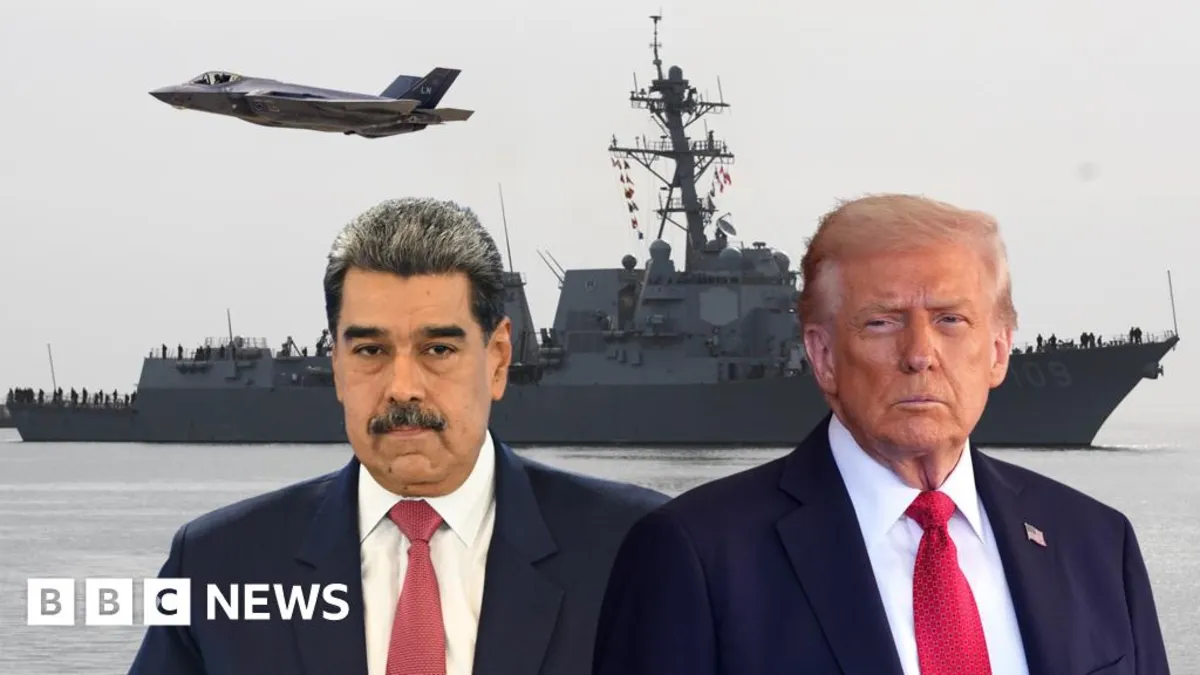
For the past two months, the US military has been significantly increasing its presence in the Caribbean Sea, deploying a formidable array of assets including warships, fighter jets, bombers, marines, drones, and spy planes. This marks the largest military buildup in the region for several decades. Long-range B-52 bombers have already conducted attack demonstrations off the coast of Venezuela, indicating a show of force. President Donald Trump has even authorized the deployment of the CIA to Venezuela amid rising tensions.
The US government claims it has carried out strikes on small vessels from Venezuela that allegedly transport narcotics and narco-terrorists, although details and evidence regarding the individuals aboard these vessels remain undisclosed. These military actions have drawn regional condemnation, and many experts have raised questions about their legality. While the US promotes this initiative as part of a war on drug trafficking, analysts suggest it primarily serves as an intimidation tactic aimed at removing President Nicolás Maduro from power.
"This is about regime change," asserts Dr. Christopher Sabatini, a senior fellow for Latin America at the Chatham House think tank. He argues that the military buildup is a strategic display of strength designed to instill fear within the Venezuelan military and Maduro's inner circle, potentially pushing them to act against him.
To gain clarity on the situation, BBC Verify has been actively tracking publicly available information regarding US military assets in the region, including satellite imagery and social media reports. As of October 23, at least 10 US military ships were identified in the area, comprising guided missile destroyers, amphibious assault ships, and oil tankers meant for refueling.
The US administration, particularly Secretary of State Marco Rubio, has expressed a desire to see Maduro ousted. Earlier this year, Rubio referred to Maduro as a "horrible dictator" and hinted at efforts to push for his departure. Throughout this context, the US has raised its bounty for information leading to Maduro's arrest to $50 million, aiming to incentivize members of his loyal inner circle to betray him. Despite the lucrative offer, no significant defections have occurred.
Venezuelan law professor Jose Ignacio Hernández points out that $50 million holds little appeal for the country's elites, who can profit immensely through corruption in a nation rich in oil. Historical examples, such as the former head of Treasury who amassed $1 billion in bribes, illustrate the entrenched corruption within Venezuela. Analysts agree that for any regime change to occur, the military's loyalty is paramount, and they would likely demand guarantees of immunity from prosecution in exchange for turning against Maduro.
While Trump has claimed that the military actions are aimed at curbing narcotics trafficking, many experts argue that the real motivation is more complex than just a drug war. Dr. Sabatini points out that the rhetoric mirrors that of the Venezuelan opposition, framing Maduro's government not merely as a dictatorship but as a criminal regime. The US Justice Department has accused Maduro of leading a drug trafficking organization, a claim he vehemently denies. Notably, Venezuela is not a significant producer of cocaine; that title belongs primarily to Colombia, Peru, and Bolivia.
Despite the claims of a war on drugs, military analysts suggest that the current scale of US operations is excessive for such an objective. Tracking data reveals the presence of multiple US ships near Puerto Rico, including the guided missile cruiser USS Lake Erie. Additionally, satellite imagery has indicated the presence of advanced fighter jets and surveillance drones in the vicinity.
The US has increased its air presence in the region, with reports highlighting the operation of F-35 fighter jets and MQ-9 Reaper drones. These assets have a history of being utilized for surveillance and attack missions in various conflict zones. Moreover, social media reports indicate the deployment of military helicopters off the coast of Trinidad and Tobago, suggesting a comprehensive military strategy.
When asked about the CIA's potential role in targeting Maduro, Trump avoided a direct answer but acknowledged that military operations are being considered. The CIA has a controversial history in Latin America, known for covert interventions and regime changes. As per Ned Price, a deputy to the US representative to the United Nations, CIA operations can range from information campaigns to outright regime change.
Dr. Sabatini speculates that if the CIA opts for aggressive measures, it could involve targeting key military infrastructures or even attempting to capture Maduro himself. However, the pressing question remains: how long will Trump sustain such a military presence in the Caribbean? If the buildup is intended to intimidate Maduro, it is uncertain whether it will be sufficient to provoke defections or lead to an actual attempt to dislodge his regime.